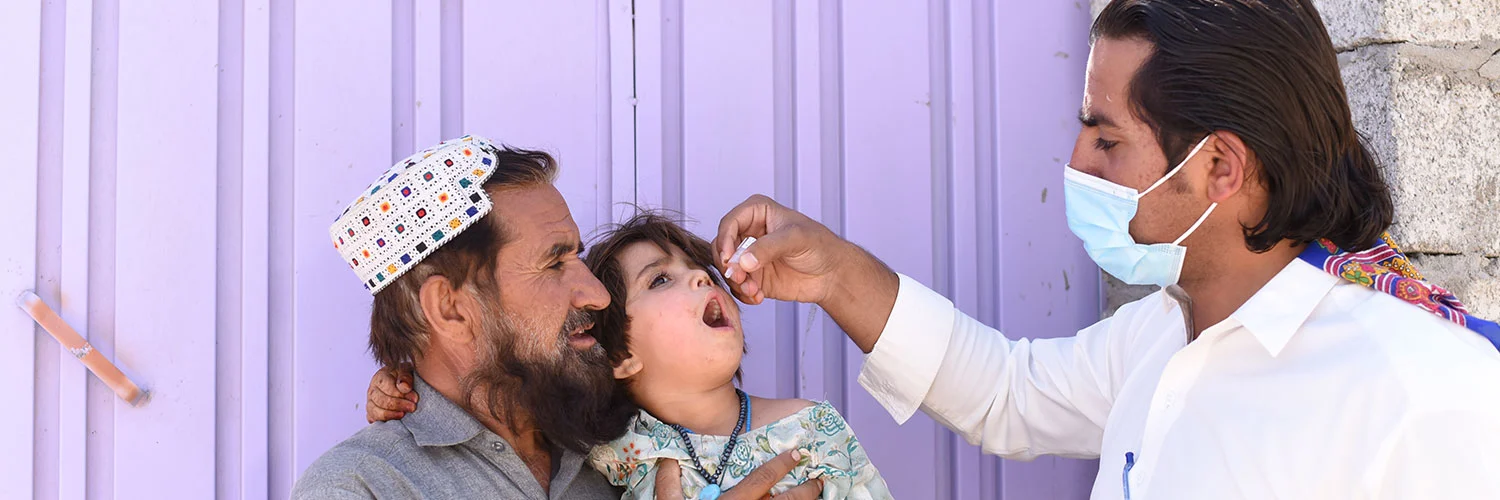Islamabad, the 29th January, 2016 - A two-day Technical Advisory Group(TAG) meeting comprising of global Public Health experts on polio eradication in Pakistan concluded in Islamabad on Friday.
Speaking on the occasion, Minister for National Health Services, Saira Afzal Tarar said“ Our commitment to Polio Eradication remains resolute and firm. It is with strong political will and national consensus that we will root out the disease.”
She further added, “The considerable efforts made by the Government of Pakistan and Global Polio Eradication Initiative (GPEI) partners to improve the programme’s performance over the past year and paradigm shift to cover the missed children has significantly improved the overall situation.”
Prime Minister Focal Person on polio Eradication, Senator Ayesha Raza Farooq said “Pakistan has run a marathon for polio eradication, and now the finishing line is in sight. We have to sprint and finish the job.” She added “We believe that Pakistan with the support of its technical, operational and development partners can take this historic opportunity to eliminate the polio virus in our country and that we can work effectively with our counterparts in Afghanistan to end polio forever.”
Presenting findings and recommendations at the conclusion of the meeting TAG Chair, Jean Marc Olive commended the efforts of the programme for the overall improved quality of SIAs across all provinces and districts, and the full shift towards finding and vaccinating missed children. He said there had been significant progress made by the program since the last meeting especially on leadership, management, oversight and accountability across all levels and the commitment and determination of the security forces has been important in ensuring campaigns are conducted in a safe and secure environment for front line workers.
He congratulated the Polio Program on the success of communication component of the program and its contribution to reducing the number of missed children. He made special mention of the deep level of integration of communications into all aspects of the programme and its impact on identifying and reducing missed children. TAG chair also commended introduction of innovative approaches like Continuous Community Protected Vaccination (CCPV) to improve quality and coverage in the highest risk union councils.
TAG concluded that the goal of interruption of transmission is achievable, but at risk unless there is further reduction in the immunity gaps especially in the core reservoirs.
“The most important risk to timely interruption of transmission of poliovirus in Pakistan is Karachi. The city remains a hub for population interactions across Pakistan and Afghanistan, and an amplifier of imported and indigenous virus.”
TAG handed down a number of critical recommendations for the country, focused on further enhancing involvement of Deputy Commissioners; strengthening the focus on core reservoirs and identifying specific Action-Plans for poorly performing districts.
“There should be a focused effort to continue delivering high quality immunization activities in the next four months everywhere, with particular focus on areas with evidence of poliovirus transmission especially Karachi, Killa Abdullah, Khyber, Peshawar and Sukkur”
TAG noted improvements to community surveillance and environmental surveillance will be important for the detection of transmission over the coming months and said the lessons learnt from the CCPV experience should be used to improve performance in non-CCPV areas
TAG asked that Pakistan begin preparations for the 2016-2017 National Emergency Action Plan (NEAP) in the coming months and be prepared to reconvene mid-2016 to review and track progress.
The Government of Pakistan also thanked key donors who are making generous contributions to the programme: Japanese International Cooperation Agency (JICA), Government of Canada, Government of Germany, Islamic Development Bank, Government of Japan, USAID, World Bank, Government of United Arab Emirates and the Government of Saudi Arabia and the GPEI partners including Bill and Melinda Gates Foundation and Rotary International.

